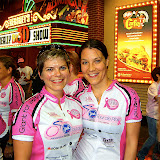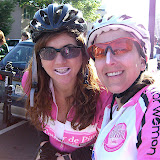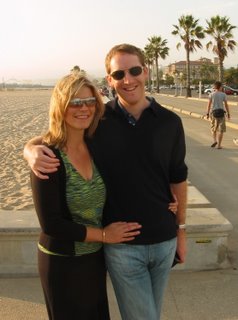It was the same startlingly small, 40-room hospital I stayed for two nights in April. The same green jello on the dinner tray, the same blue and white gown soft from many washings, the same red-haired nurse capably bustling around taking vitals before the same two doctors started the same surgical procedure to remove two breasts and replace them with smaller, perkier, and far less threatening silicone models.
And yet it is very different when your mother is the one in the bed. When she seemed to need reassurance, I told her how quickly the anaesthesia put me to sleep and how I was not in pain when I woke up. When she needed distraction, I talked about the places we could shop for clothes afterwards, once her new body was feeling up to it. But once they wheeled her to the elevator, pushed by the doctor himself (in what was either VIP treatment or an expression of the hospital’s limited personnel), all I could do was wait.
It took longer than my surgery did, because Mom opted for prophylactic ovarian removal at the same time. “One stop shopping,” said the doctors. Dad and I ordered breakfast from the coffee shop, and I got to experience first-hand the glacially slow, albeit extraordinarily friendly, service from the octogenarian volunteers that staff the place that Michael and Mom had laughed about during my stay in April. Twenty minutes and a lukewarm bagel later, we idly scanned the newspaper, talked about Christmas plans, and waited for news.
There is nothing as reassuring as a smiling doctor. The gynecologist came out first – the salpingo-oopherectomy (removal of ovaries and tubes) was finished, they had been able to complete it laproscopically (making recovery easier), and everything looked normal. This being the part that was most unknown since I had not been through it myself, we enjoyed a few moments’ relief before settling in to wait for the next report.
The hospital is so small that the “waiting room” is a collection of three couches and two chairs inside the front doors. I sat there with my laptop open, fully intending to catch up on blogging since it had been so long and since many of our friends and family knew that was Mom’s surgery date, and I wanted to let them know the good news. When I found that I could not concentrate enough to formulate coherent sentences, I switched to online Christmas shopping.
Dad had his brave face on, but his agitation showed in his inability to be out of sight of the operating room’s exit – rather than joining me in the seating area, he chose to stand in the hallway, leaning against a wall, ready to spring to some sort of action when the doctors emerged.
Which they did, smiling. Everything had gone smoothly, no complications, and they would be wheeling Mom upstairs within the hour, once the anaesthesia had started to wear off. Truly relieved, we beat the coffee shop’s 2 p.m. closing time by 5 minutes, celebrating with painstakingly constructed tuna melt sandwiches before joining Mom in her room.
“Whose idea was this anyway?” she muttered, stirring as we approached her bedside. I had been tasked with making sure the doctors obeyed her wishes to be smaller – they assured me that the implants they put in were a third the volume of what they had removed. “You’re going to be able to wear whatever tops you want!” I said encouragingly. “I’m going to be able to stand flat up against a wall,” she groaned, trying to find a comfortable position in spite of the drains, wires and circulation socks restricting her motion.
Dad and I alternated turns spending the night in the room’s spare bed, there to help her out of bed to the bathroom and to ensure she had all the ice chips, water and graham crackers she needed. I remembered the monotony and waiting to feel better being almost worse than the physical discomfort itself, and it was no different for Mom. The boredom was lifted by a very unexpected visitor - our dear family friend Joseph surprised us all by jumping on a plane, braving the Newark airport rental car parking lot, and navigating his way to Dobbs Ferry in an incredibly generous and appreciated act of friendship.
After three nights, we’d all had enough of hospital beds, and fortunately Mom felt well enough to negotiate her way down the hall, out the door and into the car under her own steam. For the past week, she has been recovering here in our apartment, slowly getting to the point that she can get out of bed on her own, gradually feeling good enough to brave the trek across Broadway to Barnes & Noble for coffee and a quick scan of the magazines before returning home for a nap.
“When did you start feeling better?” she’ll ask, and I try to remember. It took a few days before I could concentrate on more than television, a week before I had any desire to leave the house. It felt like weeks before my drains came out, months before I could sleep on my side again, ages before I felt human. In reality, recovery happened much faster than that - my credit card statement will prove I was out shopping by day 10, and I was back to work in a month.
People ask if watching Mom go through this is hard on me. It is, but not because it brings back bad memories of my own surgery and recovery, which was equally as smooth. Rather, it’s hard to see Mom in pain, unfamiliar to be in the role of her caretaker, bizarre to help fit her into a new bra. All things she did for me when I was growing up.
Many people move from being taken care of to being the caretaker for one’s parents as time passes. The thought used to scare me, but now I see it as an honor. Although my surgery was a necessity since I had cancer, hers was a choice to avoid the disease down the road, a measure to help extend her life, and in many ways an unforgettable and overwhelmingly generous gift to me.






















